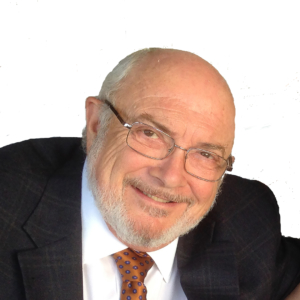Imagination Can Provoke Performance
Imagination CAN Provoke Performance.
Tonight, our founder and managing executive Ron Slee describes for readers the different ways that our imagination can provoke performance.
As we continue to develop products within our Learning Without Scars employee development platform, I am constantly pushing to find the tools and the means to provoke individual performance from the people who enroll in our classes and assessments. Typically, that starts with me. I am trying to provoke myself to accomplish more. It seems as if I have been on some type of mission my whole life. I am driven to help people achieve their potential. Talk about tilting at windmills.
But that is me. That is who I am. I am constantly looking around the next corner, asking questions, wondering how to do things in a better way. It seems that has been my approach since I was a little boy. I am impatient. I am curious. I am driven. I once asked a man, that I had worked with in three businesses, how easy I had been to work with. He started laughing. He said I was never easy to work with at all. At first, I felt insulted but I eventually understood what he meant. I didn’t like to fail at anything I did. Sometimes it just took a little longer than I wanted.
Years ago, I used to go to bed with a pad and pen on my night table. I would wake up in the middle night and write down some brilliant idea that had occurred to me. You see it couldn’t wait until morning. I might forget it. I stopped doing that when I couldn’t read my writing in the morning. My wife, Marlene, signed me up for acupuncture to address what she called my “busy mind.” The acupuncturist was a wonderful lady named June. After several sessions she called Marlene and told her to stop wasting her money, this wasn’t going to work. I still suffer this way. I am sure that I am far from alone in this regard.
Albert Einstein said that “imagination is more important than knowledge.” Think about that for a moment. Alfred North Whitehead a Harvard professor of Philosophy thought of all education as “the imaginative acquisition of knowledge.”
We are entering into an age of constant learning. Adult education. In a recent Podcast with Ed Gordon, we talked about the Fourth Industrial Revolution. The one we are in at the moment. He put forward two critical points that we have to face about the workforce.
- Business doesn’t feel they need to train their employees once hired.
- Employees don’t feel they need to continue to learn once they leave school.
So how is this going to work with the workplace over the next ten or twenty or thirty years? Ed suggests the following outcomes.
- A third of the workforce will be fine, they are educated and have a purpose.
- A third of the workforce is undereducated and has no purpose.
- A third of the workforce has dropped out for whatever reason.
So let us return to the imagination. Ralph Waldo Emerson said that “imagination is not a talent of some men but is the health of all men.” In athletics, it is called “Visualization.” You are taught to visualize the result that you want. Our imagination allows us to take flights of fancy. Imagine what it would be like if this happens or if that happens. I am going to hit this golf ball right down the middle of the fairway. I can see the path the ball will follow on the green right into the hole. Use your imagination and think of something you would like to happen.
That is how we can get to the place that we imagine. We turn our imagination into performance. We strive to make real that which we have imagined. If we can only use our imagination and then set goals, or have a sense of purpose, towards accomplishing what our imagination showed us was possible we would all be in a different place.
As I said I am interested in helping each person achieve their potential. The difficulty is understanding what that potential might be. In life, I believe that each person has three attributes that they live with every day.
- Everyone wants to do well at whatever they do.
- Everyone can do more than they realize.
- Everyone is fundamentally lazy.
Think about that. Imagine that is you. Then translate imaginative thought into performance so that you will achieve more than you thought was possible. Then you will start to understand “The Art of the Possible.”
The time is now.
Did you enjoy this blog? Read more great blog posts here.
For our course lists, please click here.


